If you’re wondering how do tattoo shops make money, you’re not alone. Tattoos are an increasingly popular form of self-expression, and with the rise in popularity comes an increase in tattoo shops. But how do these businesses make money? In this article, you’ll learn the ins and outs of how tattoo shops make money, including what services they offer and how they set their prices.
Contents
What Is a Tattoo Shop?
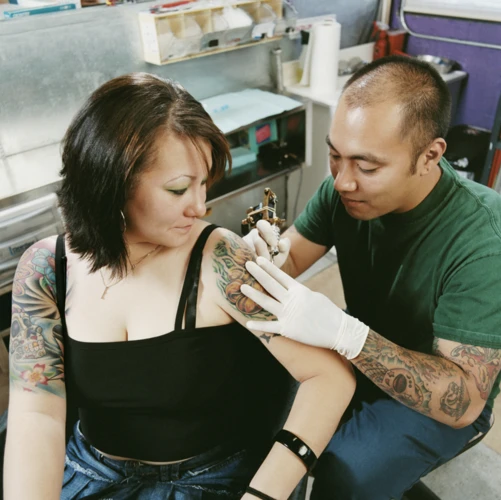
A tattoo shop is a business that specializes in the application of permanent tattoos. These shops are usually staffed by experienced tattoo artists who are able to create custom designs for their customers.
Tattoo shops typically offer a variety of services, including:
- Designing custom tattoo artwork.
- Applying permanent tattoos onto the skin.
- Removing tattoos.
- Providing aftercare advice.
Tattoo shops typically make their money by charging customers a fee for their services. The amount they charge will depend on the complexity of the design, the size of the tattoo, and the artist’s skill level. Some shops may also charge extra for the use of special equipment or supplies.
How do tattoo artists make money?
Most tattoo artists make their money through tips and commissions. Generally, the artist will charge a set rate for their services, and customers will also tip the artist for their work. In addition, some shops may also offer commissions for repeat customers or referrals.
How Do Tattoo Shops Make Money?
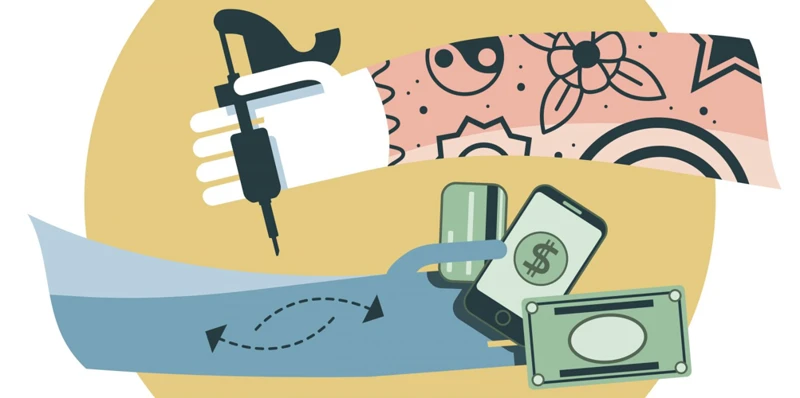
Tattoo shops make money primarily by charging customers for the tattoo services they provide. Tattoo artists charge for the time and skill required to produce the desired design, as well as for any additional supplies used. Most tattoo shops also charge a minimum fee for their services, regardless of the size of the tattoo.
Customers usually pay for tattoos in two ways:
| Payment Type | Description |
|---|---|
| Hourly rate | The customer pays for the time it takes for the artist to complete the tattoo. |
| Flat rate | The customer pays a fixed rate for the tattoo, regardless of how long it takes to complete. |
In addition to the fees for the actual services, tattoo shops also make money through the sale of related products and services such as aftercare products, apparel, and gift certificates. Many tattoo shops also offer discounts and special deals to attract more customers.
Tattoo shops can also earn money by renting out their studios to other tattoo artists or by hosting tattoo-related events such as conventions and workshops. Many tattoo shops also take part in tattoo competitions, where they can win prizes or receive donations from sponsors.
Pricing Strategies for Tattoo Shops

| Pricing Strategy | Description |
|---|---|
| Hourly Rate | Charging an hourly rate for tattoos is the most common pricing strategy used by tattoo shops. The hourly rate is based on the experience of the artist and can range from $50 to $200 per hour. |
| Flat Rate | Flat rates are typically used for simple, small tattoos. These tattoos can have a set price that the customer can pay upfront, without having to worry about the number of hours it takes to complete the tattoo. |
| Combo Packages | Tattoo shops can offer combo packages to customers. These packages bundle multiple tattoos together at a discounted rate. This is a great way to attract more customers to the shop. |
| Discounts | Discounts are a great way to attract more customers to the shop. Tattoo shops can offer discounts for repeat customers, referrals, or even special occasions like birthdays and holidays. |
Tattoo shops should carefully consider their pricing strategies in order to maximize their profits. Different pricing strategies can be used depending on the type and size of the tattoo, as well as the experience of the artist. It is important to keep up with market trends and adjust pricing accordingly in order to remain competitive. A good pricing strategy can help a tattoo shop attract more customers and increase its profits.
Sources of Revenue for Tattoo Artists
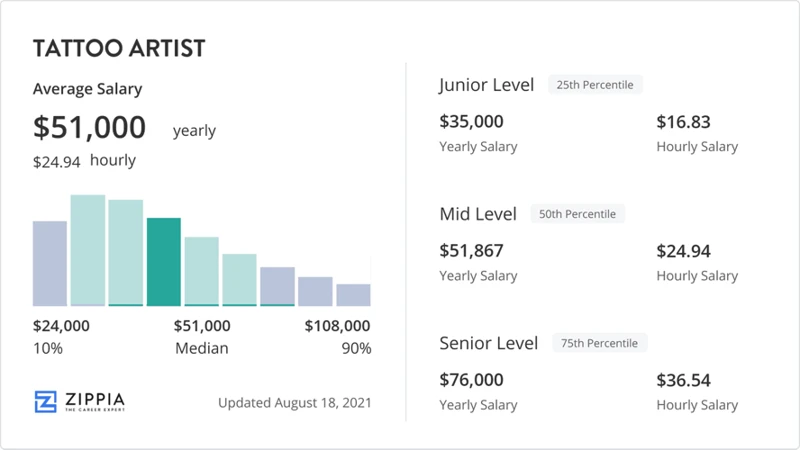
Tattooing Services: The primary source of income for tattoo artists is the fee they charge for the services they provide. These fees vary and may include a flat rate per tattoo, an hourly rate, or a combination of the two.
Merchandise Sales: Tattoo artists may also generate revenue by selling merchandise such as flash art, prints, and apparel.
Commissioned Work: Tattoo artists may also earn additional income by taking on commissioned work such as custom designs or cover-ups.
Licensing: Tattoo artists may also generate revenue by licensing their work for use in other products, such as clothing or home decor.
Events and Conventions: Tattoo artists may also generate income by participating in events and conventions, where they can promote their work and network with other tattoo artists.
Additional Opportunities for Tattoo Artists
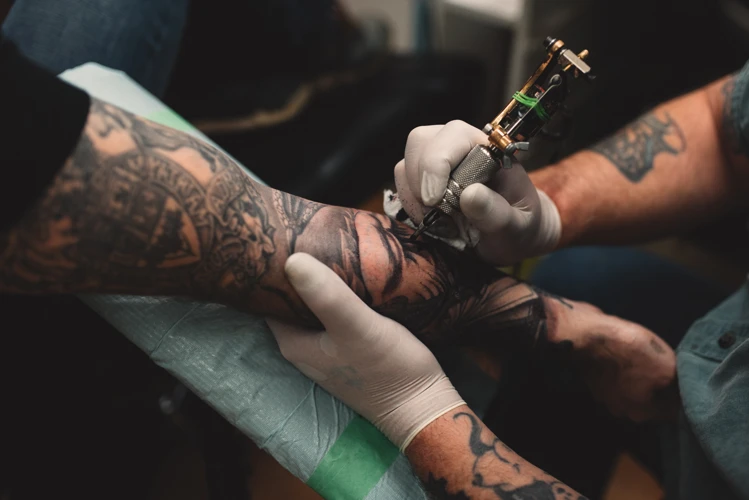
Tattooing in other Locations: Tattoo artists can reach a wider audience by traveling to other locations and offering their services. This could include conventions, private events, and other opportunities.
Teaching and Mentoring: Tattoo artists can also make money by teaching others the trade. They can offer courses, workshops, and one-on-one mentoring sessions.
Selling Supplies: Tattoo artists can also make money by selling their own supplies. This includes inks, needles, and other materials.
Creating Merchandise: Tattoo artists can also make money by creating merchandise. This could include t-shirts, posters, and other items.
Retail Opportunities: Tattoo artists can also make money by selling their artwork in retail stores. This could include shops, galleries, and other outlets.
Online Platforms: Tattoo artists can reach an even wider audience by selling their artwork on online platforms. This could include Etsy, eBay, and other websites.
Freelance Opportunities: Tattoo artists can also make money by providing freelance services. This could include designing logos, creating illustrations, and more.
Financial Considerations for Tattoo Shops
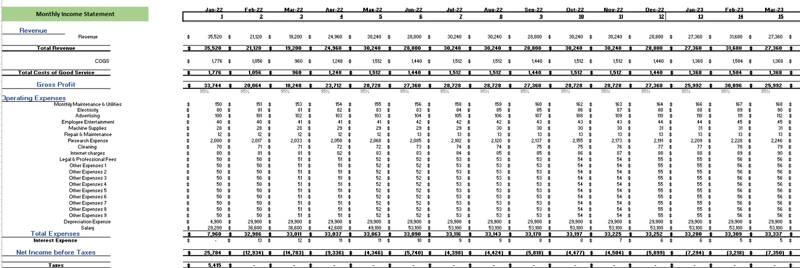
- Startup Costs: Tattoo shops usually require a significant investment of capital to get up and running. These costs can include the lease or purchase of a shop space, the purchase of equipment and supplies, and the cost of licenses and permits.
- Supplies: Tattoo shops must stock a wide variety of supplies, including needles, inks, stencils, and other items. These supplies must be purchased regularly, and the costs can add up quickly.
- Licensing Requirements: Most jurisdictions require tattoo shops to obtain a special license in order to operate. This can involve a substantial application fee and ongoing costs for inspections and other requirements.
- Employee Costs: Most tattoo shops employ at least one artist, and some employ multiple artists. These employees must be paid a wage, and the shop may also need to cover taxes, benefits, and other costs.
- Insurance: Tattoo shops are usually required to carry liability insurance in case of an injury or accident. This insurance can be expensive, but it is essential for protecting the shop and its employees.
- Marketing Costs: Many tattoo shops rely on word-of-mouth referrals to bring in customers, but others may need to invest in marketing and advertising in order to reach potential clients.
Challenges for Tattoo Shops
- Health Regulations: Tattoo shops must adhere to strict health regulations to ensure the safety and cleanliness of their customers. This includes proper disposal of needles, sterilization of equipment, and proper sanitation of the shop’s environment.
- Competition: Tattoo shops may face stiff competition from other shops in their area, as well as from online tattoo services. Tattoo shops must find ways to stand out, such as by offering unique services or creating a distinctive brand.
- Cost of Supplies: Tattoo shops have to pay for the supplies they need for each tattoo, such as ink, needles, and machines. These costs can add up quickly, so shops must find ways to manage their expenses.
- Customer Satisfaction: Customers expect high-quality tattoos when they go to a shop, so tattoo shops must strive to provide the best service possible. This includes ensuring that customers are comfortable and happy with their tattoos, as well as providing helpful advice and guidance throughout the process.
- Advertising: Tattoo shops need to make sure that they are visible to potential customers. This means creating an effective advertising strategy, such as creating a website, using social media, or working with local businesses to promote their services.
Frequently Asked Questions
Are There Different Ways That Tattoo Shops Make Money?
- Tattoo Fees – Most tattoo shops charge an hourly rate for their services, with the cost of a typical tattoo ranging from $100 to $500 depending on its size and complexity.
- Supplies – Tattoo shops make money from selling the supplies that they use for their tattoos. This includes ink, needles, stencils, and other equipment.
- Merchandise – Tattoo shops may also make money by selling merchandise such as t-shirts, hats, and other items related to the shop.
- Events – Some tattoo shops may also host events such as tattoo conventions or workshops where they can make additional revenue.
- Commissions – This is when an artist is paid a commission for their work on a client’s tattoo. This is typically a percentage of the total cost of the tattoo.
What is the Average Cost of a Tattoo?
The cost of a tattoo will vary depending on several factors, such as the size and complexity of the design, and the geographical location of the shop. Generally, small, simple tattoos cost between $50 and $100. Medium-sized, more complicated designs can cost between $100 and $400, and larger, full-color designs can cost up to $1,000 or more.
What Safety Measures Should I Consider Before Getting a Tattoo?
Before getting a tattoo, it is important to consider the safety measures to ensure a safe and healthy experience. Make sure to research and visit a reputable tattoo parlor with a certified professional artist. Ensure that the studio is following safety protocols such as using sterilized and single-use needles and supplies, wearing gloves and a face mask, and using a barrier between the artist and the customer. Additionally, it is important to ask questions about the type of ink used and how the artist ensures it is safe.
What Type of Qualifications Do Tattoo Artists Need?
Tattoo artists need to have both technical and artistic skills and must be licensed in order to practice professionally. In most countries, tattoo artists are required to have a cosmetology or aesthetician license or an apprenticeship with a licensed tattoo artist. Additionally, they must have knowledge of basic health and safety protocols, and be able to demonstrate a working knowledge of the tools and equipment used in the profession.
How can I find a reputable tattoo shop?
- Research: Look up tattoo shops in your local area and read reviews, ask around your friends and family to see if they have had any experience with particular shops.
- Check Licensing: Make sure the shop you choose is licensed and in compliance with all regulations.
- Consultation: Set up a consultation with the artist before committing to the work. This will give you the opportunity to discuss your ideas and get a feel for the shop’s environment.
- Observe: Take a tour of the shop and observe how the artists interact with their clients, how the staff works together, and how the shop is kept clean.
- Ask Questions: Ask the artist or staff about their experience, hygiene practices, and the type of ink and needles they use.
Conclusion
Tattoo shops make money through the sale of tattoo services, the sale of products such as inks, needles, and other supplies, and through the sale of merchandise such as apparel and artwork. The success of a tattoo shop business depends on its ability to attract customers, provide quality services and products, and build a solid reputation for the business.